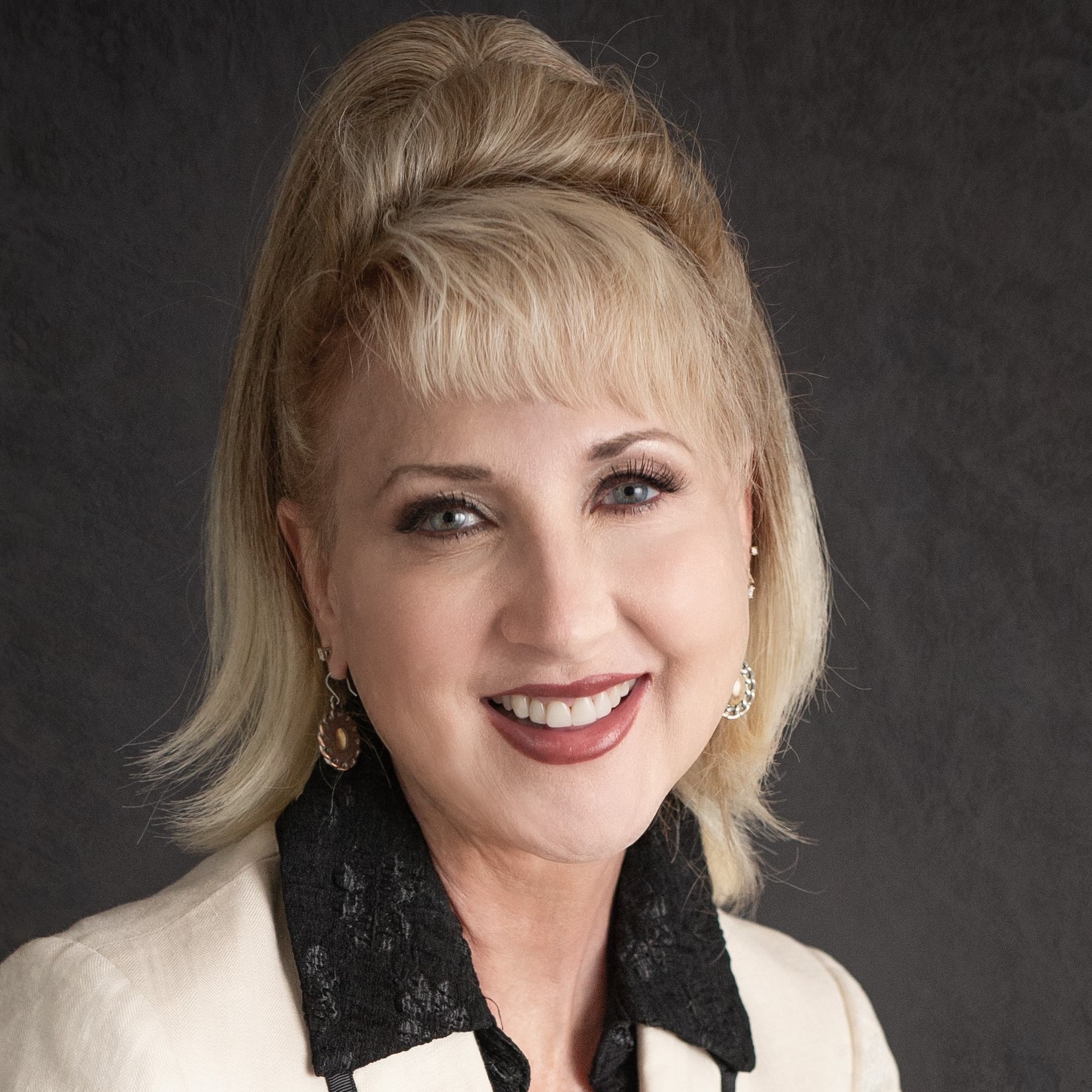Episodes

Monday Aug 05, 2024
Why Are You So Hard on Yourself? (Replay from 5-26-24)
Monday Aug 05, 2024
Monday Aug 05, 2024
For many of us, the harshest litany in our lives is the stream of self-evaluations running through our heads. This can seem harmless and even necessary to control our behavior; it is easily confused with appropriately holding ourselves accountable. But the way we deal with ourselves reveals a lot about our views of reality, and it tends to leak out into our relationships with others, though we may not be aware of that. Today Cinthia looks at two big (and related) reasons we are so hard on ourselves: unforgiveness and perfectionism.
Cinthia states that the following is an important rule of life: We accept forgiveness, and we offer forgiveness. These two actions often seem separate to us, and most of us find one easier than the other. The two are bound together, however, as Jesus showed in Matthew 6:9-13, often called “The Lord’s Prayer,” and in Matthew 7:12, often called “the Golden Rule.” (This last has reflections and corollaries that are found in every major religion, indicating that God has written it into our hearts at a deep level.) Jesus taught us to pray, “Forgive us our debts as we forgive our debtors.” He told us to do to others what we would want them to do to us. And He told us that the second-greatest commandment is to love others as we love ourselves (Mark 12:30-31). Our relationships with others and our approach to ourselves cannot be separated; this is why unforgiveness on either side of the equation produces sickness and disease in our bodies and souls.
Giving and receiving forgiveness both require an understanding of what forgiveness is not, as well as what forgiveness is. Forgiveness is not minimizing the offense, dismissing it, condoning it, or saying the offense was understandable or okay. Forgiving a bad thing does not mean calling it a good thing. It does not mean we will allow the harm to keep happening or will pretend the harm never happened; remember, trust and accountability are often separate issues from forgiveness. Forgiveness does not necessarily mean we will forget what happened; in some cases, that would not be safe to do. Forgiveness means that we turn the debt over to God and let Him handle the accounts. We stop trying to exact payment on our own, whether from ourselves or others. We give up the roles of prosecutor, judge, jury, and executioner. We see ourselves and others as valuable in spite of the choices made; we see people (including ourselves) as more than just the sum of actions committed.
For those who struggle with self-forgiveness, self-forgiveness can seem wrong, as if it dismisses the seriousness of the choice or the harm done by it. It seems too easy to let ourselves walk away from what we did. The problem is that God is the Judge, not us. He has made a way to forgive us because of what Jesus did on the cross. Receiving and embracing His forgiveness is not a dismissal of the seriousness of our actions or the harm done; after all, any choice that requires the blood of God’s Son to pay for it is serious. But adding our own mental self-punishment to Jesus’s sacrifice is not the same as taking our sin seriously; our self-flagellation cannot add ever equal the horror of the punishment He took for us. If we take our own sin seriously, we must also take seriously what He did about it.
Self-forgiveness means that we choose to live at peace with ourselves because God has chosen to live at peace with us. We may still attempt to repair damage done when that is possible (e.g., acknowledging, apologizing, making attempts to restore what we took from someone else when that is possible, etc.), but we recognize that refusing to forgive ourselves does not repair anything or help anyone. We choose to walk away from the mental torture of holding onto our sins and mistakes. We choose to see ourselves as more than our offenses. Cinthia models a statement like this one: “I am not proud of what I did, and I do not condone or minimize it. But I am choosing to move forward for the sake of my own health and well-being, as well the health and well-being of those who love me and those I am meant to impact.” You see, forgiving ourselves affects our relationships in ways we may not expect until we see it happen.
We are to forgive ourselves and others as we have been forgiven. But, if you struggle with this, remember that forgiveness is a process. Be patient with yourself, but do more than just resolve to forgive. Take steps to back up your forgiveness. When forgiving yourself, this may mean using some kind of meditation or affirmations to work on the way you talk to yourself and cut off the litany of mental self-harm that has become wired into your brain. It may mean choosing positive self-treatment even when you do not feel deserving of it, choosing to show love toward yourself with some kind of action that makes things better and not worse. It may mean seeing a therapist or life coach, keeping a diary, or engaging in your faith in a different way. Sometimes the refusal to forgive yourself becomes so entrenched that releasing it entails a loss of identity; without the self-judgment and orientation around our mistakes, you have to go to God and find out who He meant you to be and where He wants your life to go. Until now, you have been focused on your sins and mistakes; where will you go when you release yourself from this?
For some people, though, self-forgiveness is difficult even when the offense is simply being human or failing to meet unrealistic expectations. This is perfectionism. If you struggle with it, consider therapy or counseling of some kind because perfectionism will impact your life and the lives of those around you. Living our lives in self-loathing often involves making too much of the judgment calls of others, mentally echoing their negative evaluations of us again and again; if we try to get all our good feelings from other people, we will live in constant fear or regret over failing their expectations. Remember, you do not have to forgive yourself for being what God made you to be, though you may need to forgive yourself for not being what He meant you to be. Again, find out from Him who He made you to be and what purpose He has for your life. Make the changes needed to follow the purpose for which you were made. Have the conversation with God, "Why did you make me?" Base your self-assessments on the intentions of your Creator, not those of the people around you or your own ideas about who you should be. If you see yourself as needing to meet a higher standard than others, you probably need to look at this; it can, in fact, be quite arrogant to insist on being better than others. If surpassing others is what protects you from shame attacks, this is unstable. God made you a person. You are unique, even in the ways you mess up. But if you are evaluating your mess-ups by your own need to avoid the messiness of being human, you will not be able to face your life effectively. Martha Beck said that "welcoming imperfection is the way to accomplish what perfectionism promises but never delivers."
Incorporate appropriate self-acceptance into your lifestyle, and remember that acceptance does not mean agreeing or condoning all the choices. Laugh more; laughter is truly the best medicine. Give yourself some freedom to stop taking everything so seriously. Living in a state of being unable to forgive requires a lot of energy -- the constancy of hurt and blame is exhausting. Forgiveness allows you to live in the present instead of in the past. The only reason we revisit the past is to learn from it, not to beat up on ourselves. Self-forgiveness and self-acceptance increases our kindness to others. It allows us to live in the present, which opens the future with purpose; we can build instead of being held back. Practice accepting your emotions. And remember, you have no control over what people say and do, but you can choose whether to base your own life on the mixed-up feelings of others. Someone was hard on the people who were hard on you; break the chain by refusing to be hard on yourself and others. Learn from the past, and be grateful that you get to move forward. Take care of yourself. You are important to God. You are beautifully and wonderfully made. Accept this reality, and act on it.

